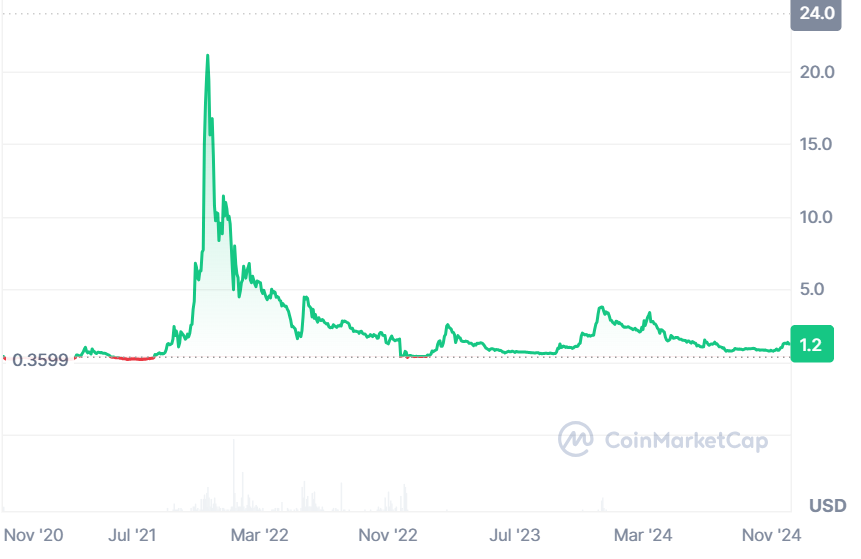South Korean financial regulators are set to allow universities to “trade” crypto sometime in 2025, a report has claimed.
Per Hanguk Kyungjae, the Financial Services Commission (FSC) is also ready to let local government bodies sell crypto.
And it will allegedly follow up by eventually allowing companies to open corporate crypto wallets.
Universities to ‘Trade’ Crypto in 2025?
The newspaper claimed sources had told it the FSC will release a tentatively named “Roadmap for Allowing Corporations to Open Virtual Asset-Won Accounts” before the end of this year.
Critics have accused Seoul of dragging its feet on the matter, allowing American, European, and Japanese companies to steal a march on domestic firms.
Many South Korean firms want to use their balance sheets to buy cryptoassets, aware of the fact that Bitcoin (BTC)-buying strategies have helped many overseas firms boost the value of their assets.
South Korea's martial law turmoil strains alliance with UShttps://t.co/bKA1QOfTmd
— The Korea Times (@koreatimescokr) December 4, 2024
However, South Korean legal conventions do not allow corporations to invest in Bitcoin or other tokens.
The FSC reportedly wants to “gradually” roll out regulations that will change that. And the body reportedly wants to begin with universities, schools, and local government bodies.
Several major universities have received crypto donations in recent years. But government guidance currently prevents them from selling their coins for cash.
There is no law that explicitly bans public bodies and corporations from opening crypto wallet-linked bank accounts.
However, regulators have told domestic banks not to accept applications from anyone except private citizens.
The FSC document allegedly outlines a “Stage 1” on the roadmap, which will allow “central government ministries, local government bodies, public institutions, other non-profit organizations, and universities” to “trade” crypto.
South Korea’s financial markets tumbled on Wednesday following a night of political chaos, as President Yoon Suk Yeol briefly declared martial law only to withdraw the measure just hours later under pressure from lawmakers.https://t.co/SVXisTSfqp
— The Korea Herald 코리아헤럴드 (@TheKoreaHerald) December 4, 2024
University Wants to Make WEMIX Sale
The move will allow universities such as the elite Seoul National University (SNU) to finally sell altcoins they have been holding for years.
The domestic gaming firm WeMade donated a large quantity of its WEMIX (WEMIX) token to SNU back in 2022.
The university has since repeatedly submitted requests to the Ministry of Education and the Financial Intelligence Unit (FIU) to allow it to sell the coins.
However, the FSC rejected all of these requests, concerned that it could lead other companies to try to promote their coins by donating them to schools.
Experts say they think SNU is currently holding some 800 million won ($566,000) worth of WEMIX.

The media outlet added that “Stage 2” of the roadmap will focus on crypto exchanges and other crypto-related businesses. An unnamed official explained:
“In order to foster the virtual asset industry and increase the effectiveness of regulations, business operations such as issuance, listing, and brokerage […] should be carried out as if [coins] were stocks or bonds.”
“Stage 3” of the roadmap will finally give most private companies the right to buy and sell crypto, although this is listed as a “mid to long-range” goal.
Banks Last to Get Green Light?
The final two “stages” of the roadmap will see “financial companies,” a group that likely includes banks, granted permission to access the crypto market.
However, the newspaper said the FSC was “considering building safety measures” into its regulations.
One of these will likely see limits placed on stock exchange-listed companies. These companies will only be allowed to “hold a small percentage of their capital” in crypto.
This move, Hanguk Kyungjae wrote, will help “prevent side effects” such as the creation of “Bitcoin-themed stocks.”
Crypto speculators kept Bitcoin in sight of the landmark $100,000 level in anticipation of further steps to support the sector by Trump https://t.co/cCfVdAcE07
— Bloomberg Crypto (@crypto) December 4, 2024
The FSC may find this to be something of an uphill battle. The Korea Exchange is already highly influenced by Bitcoin price fluctuations, with even minor shareholders in unlisted crypto exchanges experiencing high price volatility when crypto news breaks or BTC prices rise.
At present, the only South Korean public bodies with fiat-tradable crypto wallets are the Prosecution Service and the National Tax Service.
The tax body uses its wallets to liquidate crypto confiscated from (mainly local) tax dodgers. The prosecution mainly uses its wallets to sell the coins of convicted crypto fraudsters.
The post Regulators Plan to Allow S Korean Universities to ‘Trade’ Crypto, Companies to Follow appeared first on Cryptonews.







![[LIVE] Crypto News Today: Latest Updates for Dec. 29, 2025 – Bitcoin Crosses $90,000 as Broad Crypto Rally Lifts SocialFi and Major Altcoins](https://cryptomediaclub.com/wp-content/uploads/2025/12/1766980975-dec-29-120x86.jpg)


